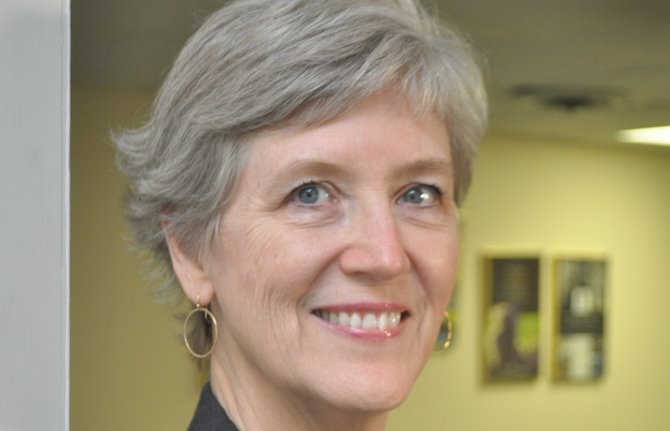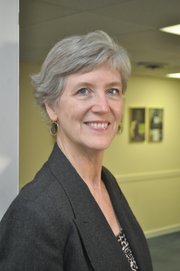Carol Penick, executive director of the Women's Foundation of Mississippi Photo by Trip Burns.
This story appeared on The Hechinger Report.
Women attending Mississippi's community colleges struggle to graduate on time, often because they are beset by a lack of child care options and insufficient financial aid, according to a recent report.
Nationally, just 56 percent of women earn a degree in six years or less according to a survey conducted by the Institute for Women's Policy Research. The institute was commissioned to do the survey by the Women's Foundation of Mississippi to assess women's experiences while in community college.
The report, "Securing a Better Future: A Portrait of Female Students in Mississippi's Community Colleges," asked 544 women from all but two of the state's 15 community colleges a variety of questions about student experiences while in school.
Students across the U.S. struggle to complete two-year community college degrees. Nationally, it takes full-time students on average 3.8 years to earn a two-year associate's degree. It takes 4.7 years to get a four-year bachelor's degree, according to the advocacy organization Complete College America.
Students in Mississippi, which leads the nation in poverty and lags in median household income, have difficulty paying for community college, where tuition varies from around $1000 to $2000 per semester. This fall, nine of the state's community and junior colleges will increase tuition by an average of about 4 percent.
Students at these schools rely heavily on financial aid; 94 percent of the respondents filled out financial aid forms, and the majority of these students receive need-based federal Pell Grants.
Paying for college is particularly tough for women in the Magnolia State: nearly 25 percent of women in Mississippi live in poverty, compared to 20 percent of men. These women are also more likely to be unemployed. About 50 percent of women who live in poverty are unemployed, compared to about 36 percent of men who live in poverty.
To better assist female students, the report recommends that community colleges keep costs low, provide on-campus child care and health care, and increase access to financial aid.
"Mississippi's economy would be stronger and better able to attract good jobs and employers if more people had degrees or credentials from a college or university," said Carol Penick, executive director of the Women's Foundation of Mississippi.
Some schools are working to combat this. For example, Mississippi Gulf Coast Community College created child care centers for full-time students on multiple campuses for $75 per week. Research shows that the availability of child care matters greatly when it comes to choosing a higher education institution.




Comments
Use the comment form below to begin a discussion about this content.
comments powered by Disqus